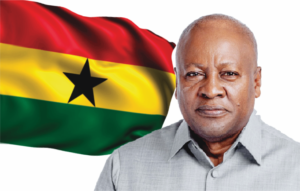Social-media Platforms’ (IP) Founders Who Sold too soon and missed becoming Tech-Billionaires of today: YouTube, Reddit, Instagram, WhatsApp…

In Silicon Valley, where fortunes rise and fall with dizzying speed, the stories of YouTube, Reddit and Instagram’s founders stand as both triumph and quiet regret. These were the dreamers who built the platforms that would come to define how billions of people consume news, argue politics, build communities, and showcase culture. Yet, in selling too early, they traded away not only unimaginable wealth, but also long-term influence in shaping the digital public square.

When Chad Hurley and Steve Chen sold YouTube to Google in 2006 for $1.65 billion, it was hailed as a landmark deal. For two entrepreneurs who had been running the fledgling video-sharing site out of a small office, the payout meant financial freedom. But the platform’s trajectory since then, which is growing an estimated 333 times in value, illustrates the scale of wealth they left behind. Today, YouTube isn’t just entertainment, it is an economic engine, a cultural battleground and a political amplifier with global reach.
A similar story unfolded at Reddit. Founders Alexis Ohanian and Steve Huffman exited early, long before Reddit became a central forum for political debate, grassroots activism, and social movements. What started as a quirky community board is now a place where elections are influenced, financial markets are shaken, as with the GameStop saga; and global conversations unfold in real time. The wealth tied to that transformation largely accrued after its original creators had moved on.
Instagram’s tale may be the most striking. Kevin Systrom and Mike Krieger sold the photo-sharing app to Facebook in 2012 for $1 billion. At the time, it seemed like a windfall. But a decade later, Instagram has evolved into a global cultural powerhouse, rivaling television in its reach and shaping trends in fashion, politics, and even mental health. The app has transformed into one of Meta’s most valuable assets, generating tens of billions in revenue each year—returns far beyond the founders’ original payday.

The human side of these decisions is complicated. These were not failures in the conventional sense. Each founder achieved success few entrepreneurs ever experience: building a company, selling it at a premium, and securing a place in tech history. Yet their stories have become cautionary tales in hindsight, illustrating how selling too soon can mean missing out on fortunes that would have catapulted them into the ranks of today’s wealthiest billionaires.
Beyond the money, however, lies another dimension: power. By relinquishing control, these founders gave up influence over platforms that now shape democracy, culture, and the global economy. In today’s world, platforms like YouTube, Reddit, WhatsApp and Instagram are not merely businesses; they are infrastructures of modern life. Their algorithms influence elections, their communities organize protests and their reach defines celebrity. The decisions of a handful of corporate executives, often far removed from the original visionaries, now dictate the rules of this digital commons.
![]()
Their early exits also reflect a particular era in Silicon Valley, when cash-rich tech giants moved quickly to buy promising startups before they grew too large. These acquisitions cemented the dominance of Google, Facebook, and others, consolidating wealth and power within a small circle of corporate empires. For founders, the offers were often too good to refuse. For society, the result was less competition, fewer independent platforms, and a digital landscape shaped by a handful of mega-firms.
Today, the “sold too soon” founders watch as their creations reshape the world in ways they may never have imagined. They are wealthy, but not tech royalty. They are pioneers, but not billionaires. And their stories highlight the fine line between vision and timing in Silicon Valley, a place where the cost of selling early can be measured not just in dollars, but in cultural and political influence.









